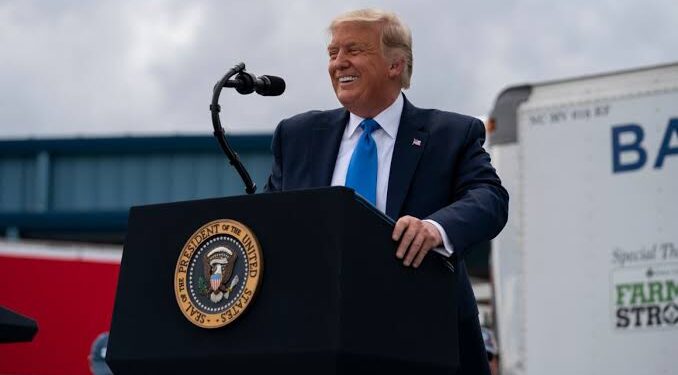As Donald Trump secures a second term in the White House, the ramifications could reshape domestic policies and foreign relations, setting the stage for significant changes in the United States and across the globe. From abortion rights to immigration and climate change, Trump’s policy agenda signals a sharp pivot to the right, threatening long-standing progress on several critical issues.
Abortion Bans and Reproductive Rights
The reversal of Roe v. Wade in 2022 opened the floodgates for abortion bans across more than a dozen states. A second Trump term could lead to federal restrictions. Trump-aligned policy proposals, such as Project 2025, advocate using the 1873 Comstock Act to criminalize the mailing of abortion pills and potentially ban essential medical equipment, effectively creating a nationwide abortion ban.
Climate Crisis and Energy Policy
Trump’s skepticism towards climate change—famously dismissing it as a “hoax”—would likely reignite policies that favor fossil fuels. In his first term, he withdrew the U.S. from the Paris Climate Accords and dismantled environmental regulations. A return to office could result in further suppression of climate initiatives, threatening global efforts to curb rising temperatures at a critical juncture for the planet.
Mass Deportations and Immigration Crackdowns
Trump’s pledge to orchestrate the “largest deportation operation in American history” remains central to his campaign. His immigration strategy hints at deploying U.S. troops for border enforcement and reviving the controversial travel ban targeting predominantly Muslim nations. Such policies would escalate border security measures and intensify deportation operations, echoing the hardline stance of his first term.
Rolling Back LGBTQ+ Rights
Under Trump, transgender individuals faced military bans and limited protections. A second term could introduce more aggressive measures against LGBTQ+ communities. Legal analysts warn that marriage equality could be jeopardized, particularly if Trump appoints additional conservative Supreme Court justices.
Press Freedom and Judicial Weaponization
Trump’s combative relationship with the media is unlikely to soften. His previous term saw frequent attacks on journalists and reliance on conservative media as political allies. Reports suggest Trump may expand efforts to prosecute political opponents, further eroding press freedom and judicial independence.
Expanding Executive Power and Military Takeovers
Trump has proposed federal intervention in Democrat-led cities under the guise of restoring “law and order.” This approach could lead to federal immigration agents conducting large-scale operations, challenging the autonomy of state and local governments.
Green Energy Reversal
The Inflation Reduction Act, championed by President Biden as a landmark green energy initiative, faces potential repeal under Trump. Critics within Trump’s camp label it a “green energy scam,” and dismantling the $370 billion bill could halt momentum toward renewable energy.
Crackdowns on Protest Movements
Anti-protest legislation surged following the 2020 racial justice protests. Trump’s platform calls for deploying the National Guard to suppress demonstrations, signaling stricter crackdowns on civil unrest and progressive activism.
Gun Safety Rollbacks
Gun safety measures advanced under the Biden administration could be swiftly reversed. Trump is expected to shut down the White House Office of Gun Violence Prevention and appoint pro-gun figures to key regulatory positions, reinforcing the influence of the gun lobby.
Weakening Public Land Protections
Trump’s energy-centric policies include scaling back the *Department of the Interior*, potentially reducing national park protections and stripping endangered species of safeguards. His administration previously slashed national monument designations, a trend likely to continue.
Global Instability and Foreign Policy Shifts
A Trump victory could exacerbate international tensions. In the Middle East, Israeli Prime Minister Benjamin Netanyahu would face less opposition to annexing the West Bank, potentially reshaping the region’s geopolitical landscape. Trump’s foreign policy could further destabilize U.S. relations with NATO allies and embolden authoritarian regimes.
After 2024 election, the stakes of a Trump presidency extend far beyond partisan divides. From reproductive rights to climate policy, the decisions made at the ballot box could shape America’s trajectory for decades to come.
Related Stories:
Putin Congratulates Trump on Election Win, Signals Readiness for Dialogue
Trump Emerges Victorious in Iowa as Republican: First Triumph in 2024 Elections
Elon Musk Joins Trump’s Call with Ukraine’s Zelensky Following Election Victory
















